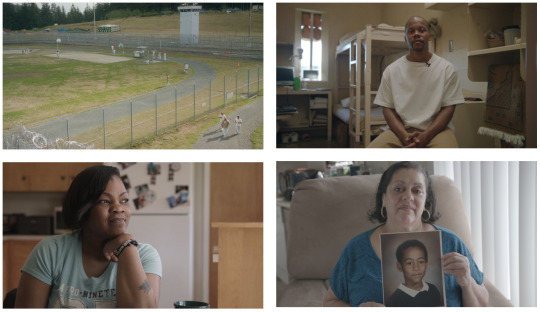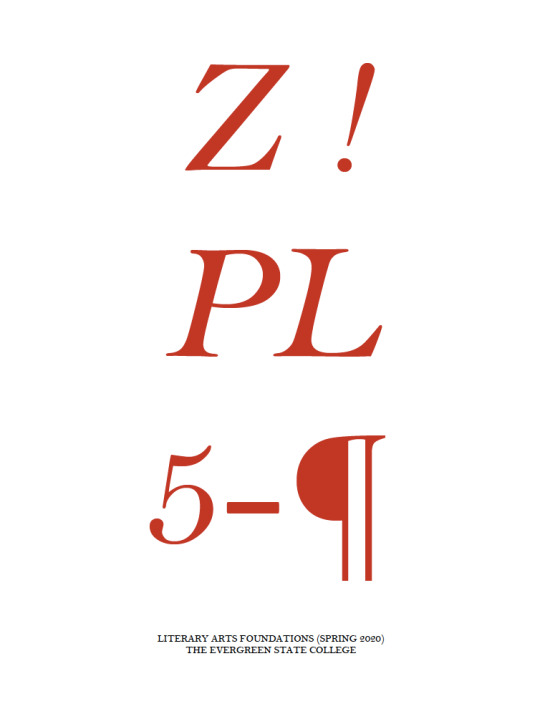Don't wanna be here? Send us removal request.
Link
2 notes
·
View notes
Link
0 notes
Link
0 notes
Text
If we do not seek to fix what has been broken, then what? How do we resolve to live with brokenness, with being broke […].
[W]e cannot be satisfied with the recognition and acknowledgement generated by the very system that denies a) that anything was ever broken and b) that we deserved to be the broken part; so we refuse […].
While describing the London Riots of 2011, Harney suggests that the riots […] do not separate out “the request, the demand and the call” – rather, they enact the one in the other: “I think […] the response is already there before the call goes out. You’re already in something.” You’re already in it. For Moten too, you are always already in the thing that you call for and that calls you. What’s more, the call is always a call to dis-order and this disorder or wildness shows up in many places: in jazz, in improvisation, in noise. […] Listening to cacophony and noise tells us that there is a wild beyond to the structures we inhabit and that inhabit us. […]
The path to the wild beyond is paved with refusal. […] [I]f we begin anywhere, we begin with the right to refuse what has been refused to you. […]
While we can circulate multiple critiques of gay marriage in terms of its institutionalization of intimacy, when you arrive at the ballot box, pen in hand, you only get to check “yes” or “no” and the no, in this case, could be more damning than the yes. And so, you must refuse the choice as offered. […]
Moten and Harney also study what it would mean to refuse what they term “the call to order.” And what would it mean, furthermore, to refuse to call others to order, to refuse interpellation and the reinstantiation of the law. When we refuse […] we create dissonance and more importantly, we allow dissonance to continue – when we enter a classroom and we refuse to call it to order, we are allowing study to continue, dissonant study perhaps, disorganized study, but study that precedes our call and will continue after we have left the room.
These kinds of examples get to the heart of Moten and Harney’s world of the undercommons – the undercommons is not a realm where we rebel and we create critique […]. Our goal is not to end the troubles but to end the world that created those particular troubles […].
Fanon, according to Moten, wants not the end of colonialism but the end of the standpoint from which colonialism makes sense. […]
[We] refuse the logic that stages refusal as inactivity, as the absence of a plan and as a mode of stalling real politics.
—–
Jack Halberstam. “The Wild Beyond: With and for the Undercommons.” An introduction included in The Undercommons: Fugitive Planning and Black Study by Stefano Harney and Fred Moten (2013).
92 notes
·
View notes
Link
0 notes
Link
0 notes
Text
Fanon, according to Moten, wants not the end of colonialism but the end of the standpoint from which colonialism makes sense. […] The mission then for the denizens of the undercommons is to recognize that when you seek to make things better, you are not just doing it for the Other, you must also be doing it for yourself. […] [N]o one will really be able to embrace the mission of tearing “this shit down” until they realize that the structures they oppose are not only bad for some of us, they are bad for all of us. Gender hierarchies are bad for men as well as women and they are really bad for the rest of us. Or, as Moten puts it: “The coalition emerges out of your recognition that it’s fucked up for you, in the same way that we’ve already recognized that it’s fucked up for us.” […]
Like all world-making and all world-shattering encounters, when you […] learn how to be with and for, in coalition, and on the way to the place we are already making, you will also feel fear, trepidation, concern, and disorientation. […]
The movement of things can be felt and touched and exists in language and in fantasy, it is flight, it is motion, it is fugitivity […]. Fugitivity is not only escape, “exit” […] or “exodus” […]. It is a being in motion […]. [W]e must make common cause with those desires and (non) positions that seem crazy and unimaginable: we must, on behalf of this alignment, refuse that which was first refused to us and in this refusal reshape desire, reorient hope, reimagine possibility and do so separate from the fantasies nestled into rights and respectability. […]
[I]f there is study rather than knowledge production, if there is a way of being together […], if there is an undercommons, then we must all find our way to it. And it will not be there where the wild things are, it will be a place where refuge is not necessary and you will find that you were already in it all along.
—
Jack Halberstam. “The Wild Beyond: With and for the Undercommons.” An introduction included in The Undercommons: Fugitive Planning and Black Study by Stefano Harney and Fred Moten (2013).
33 notes
·
View notes
Link
0 notes
Quote
To me the important thing is not to offer any specific hope of betterment but, by offering an imagined but persuasive alternative reality, to dislodge my mind, and so the reader’s mind, from the lazy, timorous habit of thinking that the way we live now is the only way people can live. It is that inertia that allows the institutions of injustice to continue unquestioned. The exercise of imagination is dangerous to those who profit from the way things are because it has the power to show that the way things are is not permanent, not universal, not necessary. Having that real though limited power to put established institutions into question, imaginative literature has also the responsibility of power. The storyteller is the truthteller.
Ursula K. Le Guin on Power, Oppression, Freedom, and How Imaginative Storytelling Expands Our Scope of the Possible | Brain Pickings (via fullpraxisnow)
2K notes
·
View notes
Video
youtube
Barbara Lee's 9/14/01 Speech
https://www.americanrhetoric.com/speeches/barbaraleeagainstinvasion.htm
0 notes
Video
youtube
"We are witnessing America as a failed social experiment" - Dr Cornell W...
0 notes

